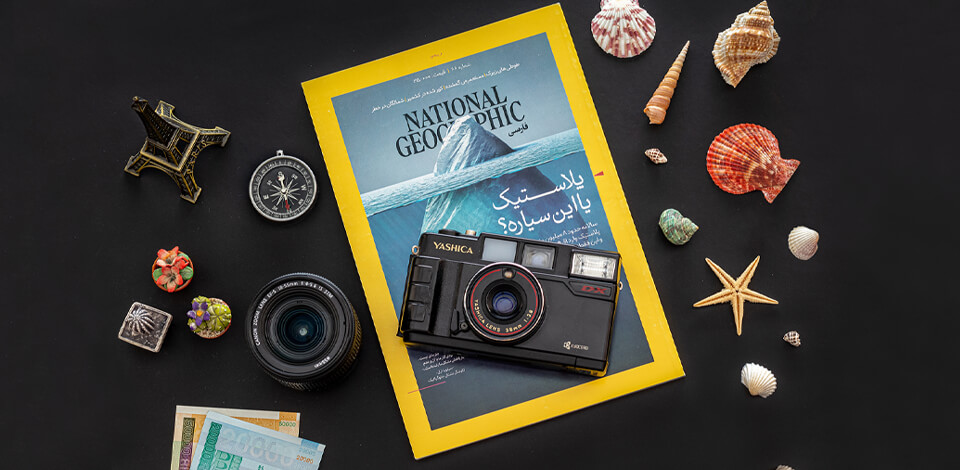
Using product photography props can help you make your photos unrecognizable. Popular photographers in the product photography genre use props to make their photos unique since a simple product image against a white background can be a good fit for Amazon but won’t look like anything special.
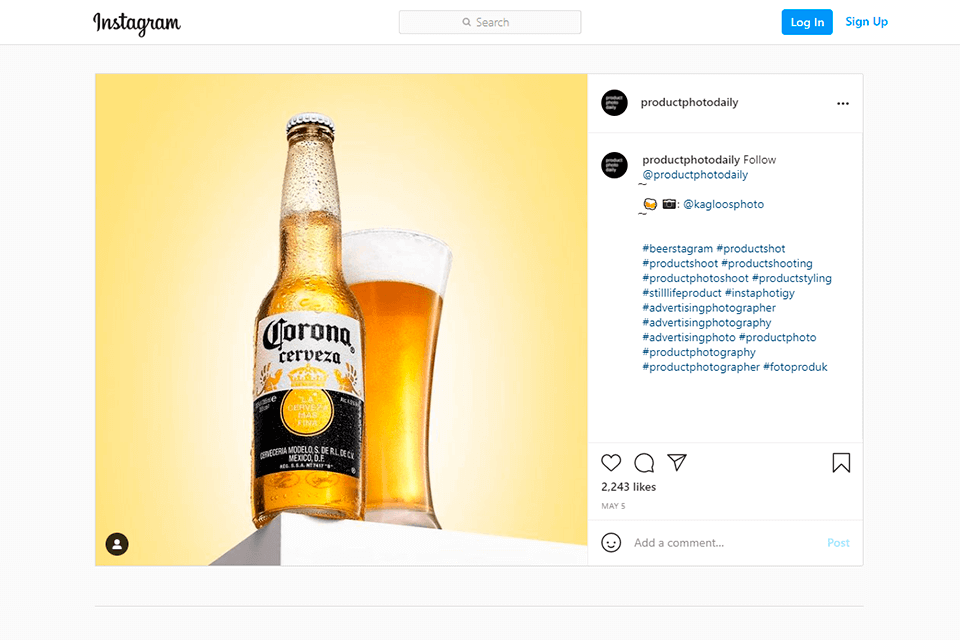
You won’t find a single cold beverage ad that doesn’t feature water droplets running down a bottle, jar, or glass. Such photos resonate with the viewer and remind them of a drink they just took out of the fridge. If you’ll try to take such a photo by using regular water, you’ll notice that the droplets run down quite fast, leaving behind unappealing smudges.
Try to purchase a bottle of glycerin in your local drug or convenience store (it shouldn’t cost much) and mix it with water in equal proportions. Now use a spray gun to cover your subject with droplets that will stay on for a long time and remain separated into many small parts.
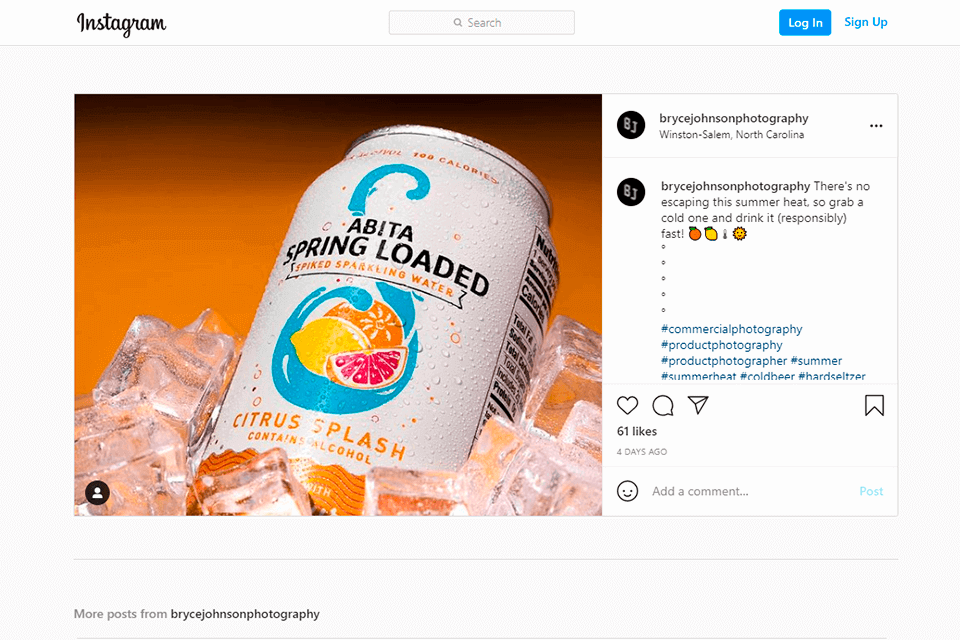
If you ever tried to take photos of a beverage on ice or of ice cubes in a whiskey glass, then I think you know why such an experiment shouldn't be repeated. Real ice causes several problems. Firstly, making it look pretty and transparent is rather difficult, secondly, it melts. Warm lamps and room temperature will ruin your ice in 10 minutes or even sooner.
To avoid that, you can purchase fake acrylic ice that can’t be distinguished from the real thing but will maintain its shape under any conditions. You can place it around the beverage or put it directly into the glass.
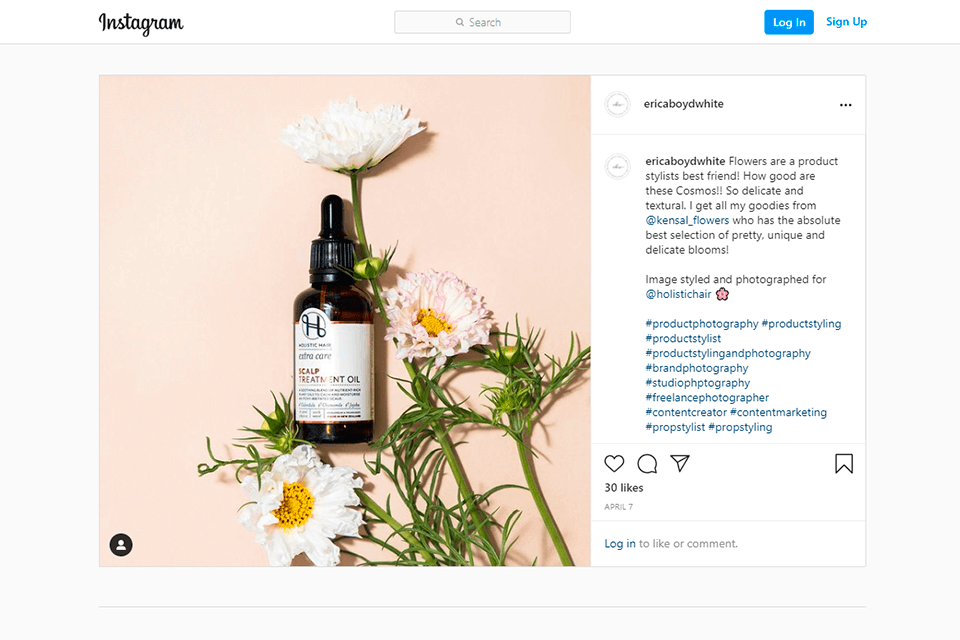
This is a classic trick used by photographers. It’s universal and works with different kinds of products. You can drown perfume in petals, place flowers around clothing, or put a wine bottle next to a bouquet.
The main rule you have to follow when using flowers as product photography props is to use complementary colors and tones.
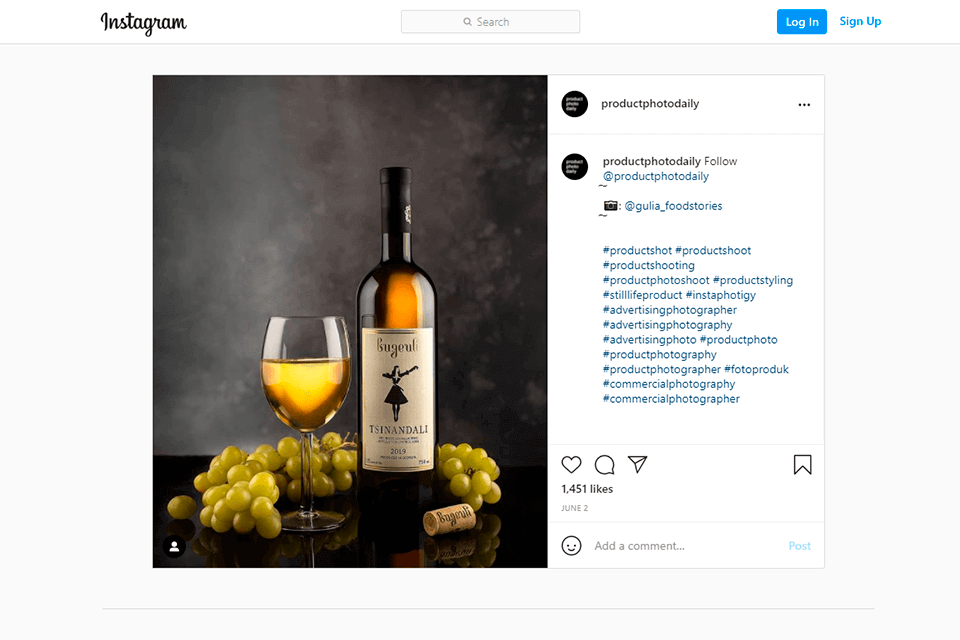
Yes, it may seem cliché, but if you give props meaning in product photography, you can create a masterpiece. Look at your photoshoot subject and come up with objects that the viewer might associate with it. With drinks and food, everything is simple, since beverages like lemonade are synonymous with lemons, etc.
However, you can use indirect connotations as well. For instance, a whiskey bottle might be surrounded by stones and wood, body cream can be decorated with green leaves, while colorful makeup can be placed on a mountain of candy or fruit.
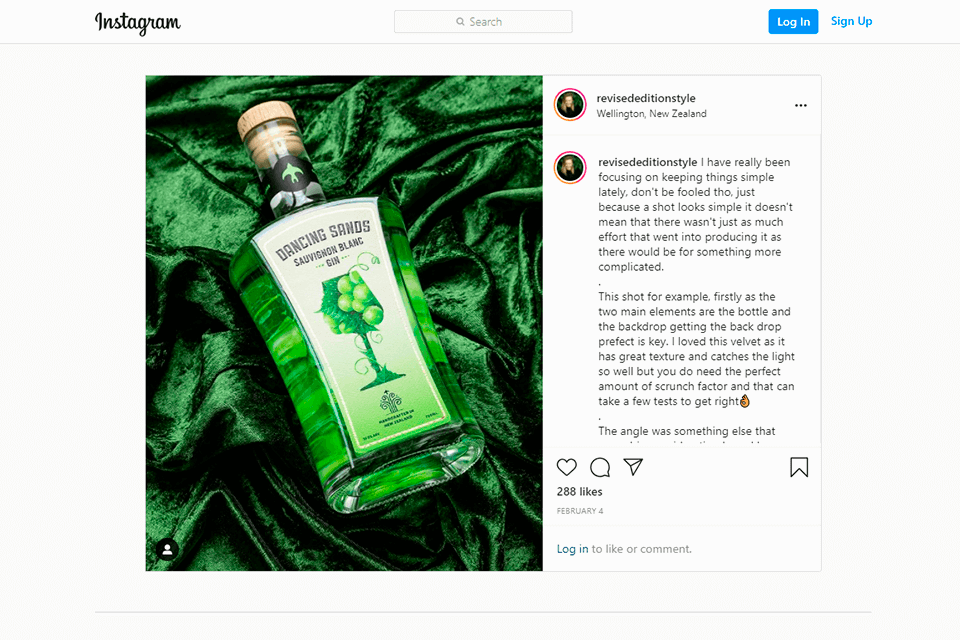
Fabric can be used simultaneously as a background and a prop. Depending on the subject, you can use different types of fabric. Silk, rayon, and velvet can look great for perfume and makeup product photography, the jacquard fabric can also complement your subject but its pattern is too distracting to be used as a background.
Lastly, don’t forget about chiffon that is usually associated with lightness, which you can use to your advantage.
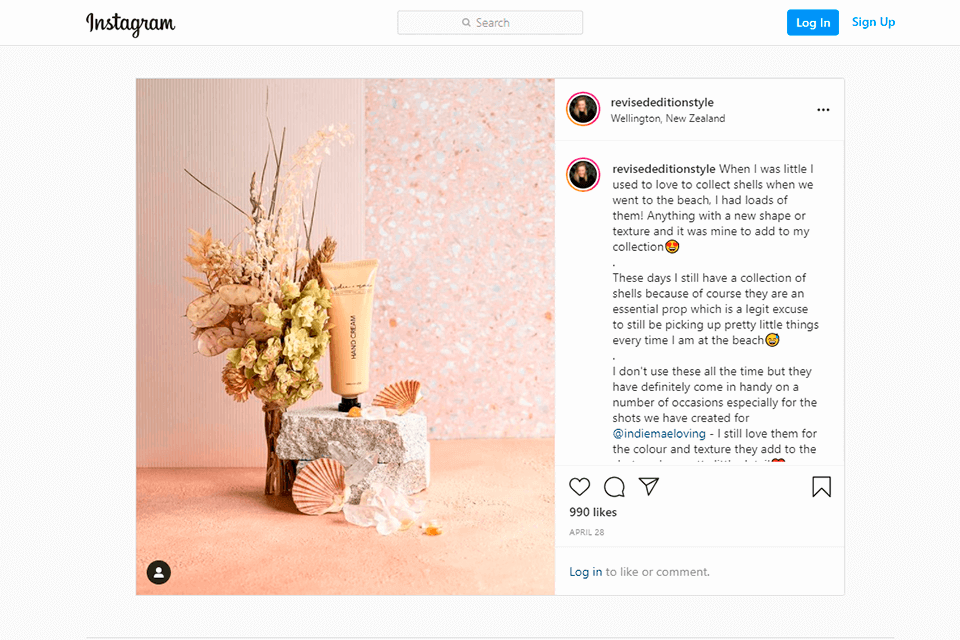
You can find such product photography props right in your backyard. I’m not talking about precious stones here, but regular rocks that you see every day near the road or on the ground around trees. The perfect place to find good-looking stones is near bodies of water. Natural rocks will become a perfect addition to your product photography ideas.
The most important thing here is to properly combine colors and textures. Use sandstone with warm lighting and harsh shadows to evoke a sense of warmth. Meanwhile, a regular boulder or a large piece of jasper can serve as a terrific surface for male perfume or jewelry. If you’re a lucky owner of a marble stone, then it can be the perfect prop for photos in any genre.
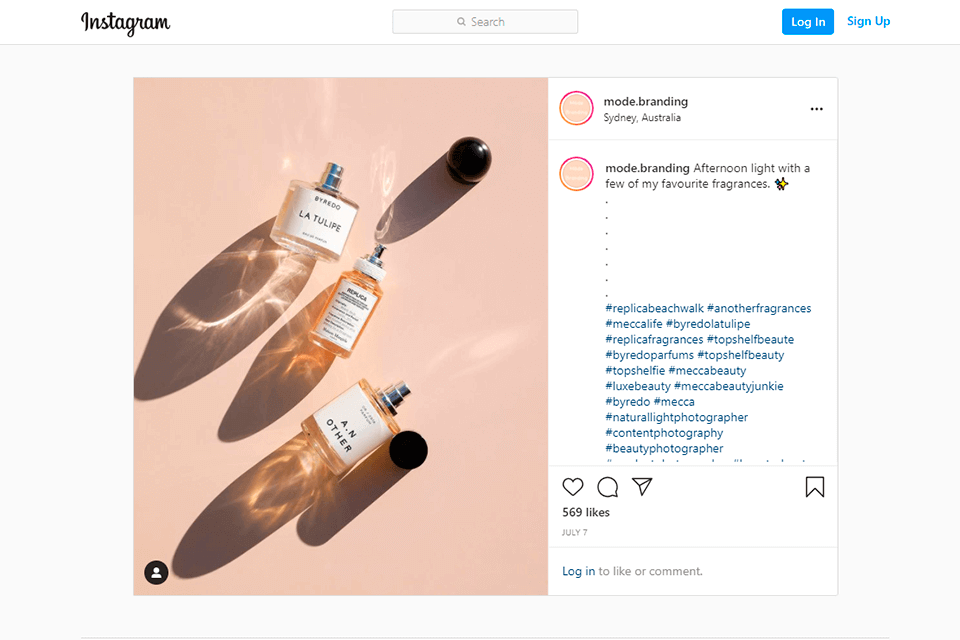
Yes, it sounds weird, but shadows often are the missing link for your shoot, as you can use them to create a backdrop. To do so, you need to shed direct harsh light onto the subject that will instantly create patterns near the objects. The shadows should be harsh since that is exactly the type of light you’d get from sunlight.
You can receive great results by using various product props for picture taking, for instance, a glass and a bottle will cast shadows of different densities, while perfume containers typically create chiaroscuro patterns.
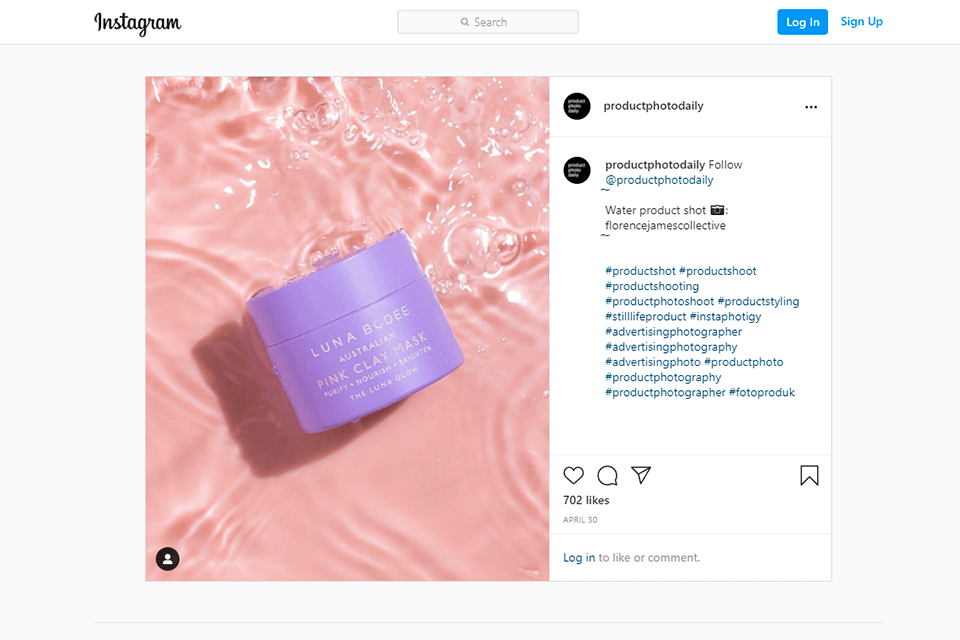
Want to evoke a feeling of freshness in the viewers? Add water to the image! To avoid having it look like you're just pouring water onto the product, you can place the subject onto a small water-covered surface.
To do so, you can take a plastic platter out of the fridge or any other transparent container that won’t let the water spill out. Now you need to put a paper sheet of the desired color underneath it and pour in a bit of water. For a better effect, you can add a bit of blue coloring to the water.
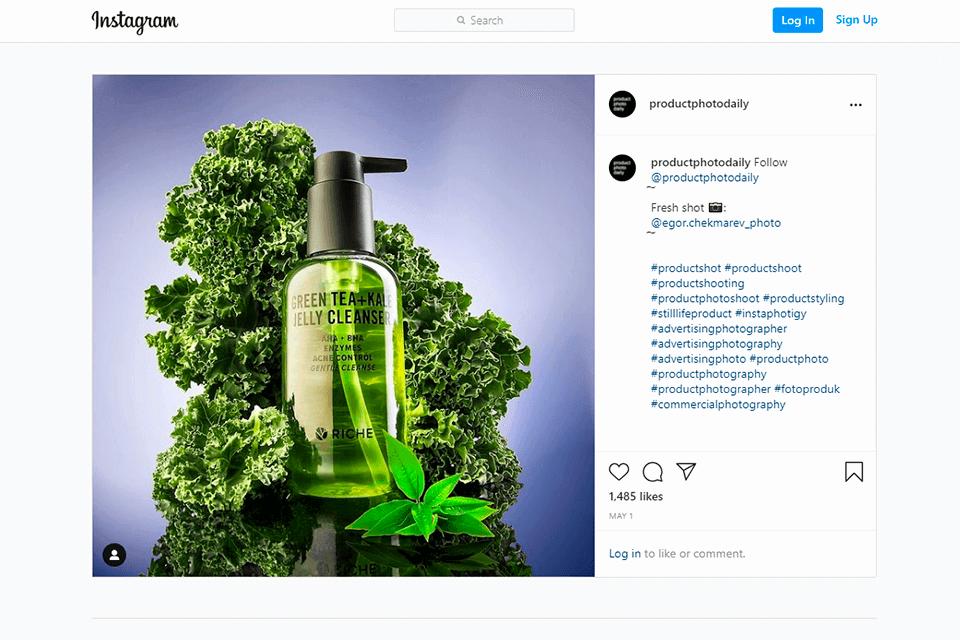
If the subject of the photoshoot is somehow tied to ECO products and made of natural ingredients like hygiene products made of herbs, then plants are the ideal props to use in product photography.
However, don’t use artificial ones since the viewer will see their fakeness right away. The most photogenic leaves can be found on monstera, fern, strelitzia, and anthurium plants. Combine this idea with the first suggestion about glycerin and you’ll receive stunning tropical shots.
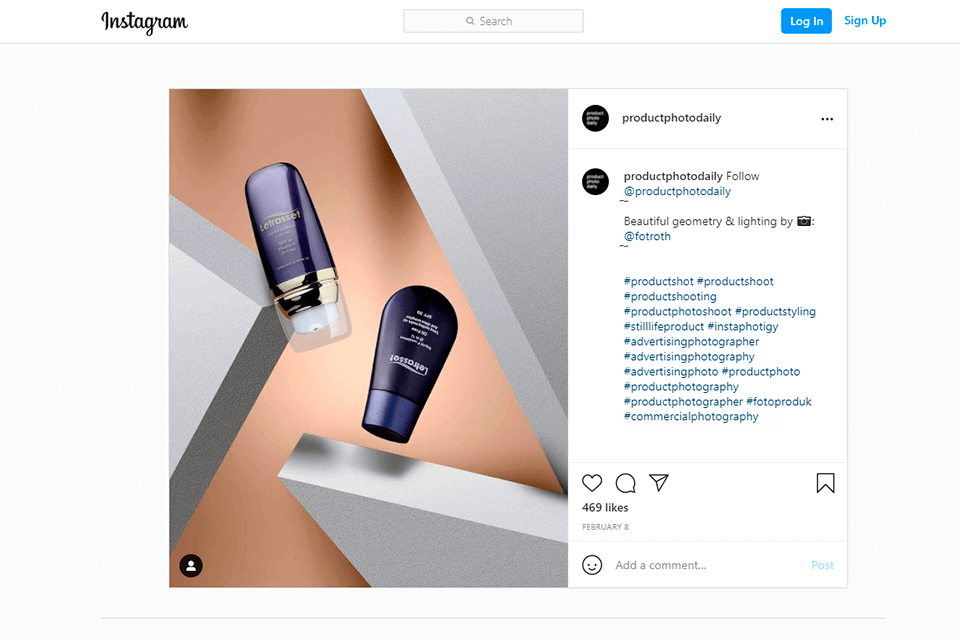
Oftentimes, you’ll want to make the subject float, but doing that yourself is rather hard, if you’re not using any kind of support. You can deal with that problem by getting a thread that can sustain the weight of the product.
Fishing lines are typically the optimal choice since they’re semi-transparent and can be easily removed from the image while offering good sturdiness.
Tie or glue it to your subject as tightly as you can, or do one better and attach multiple layers of the fishing line to hang up your object. To avoid dealing with irritating swinging and unwinding, you have to attach the line at the opposite sides of the subject.
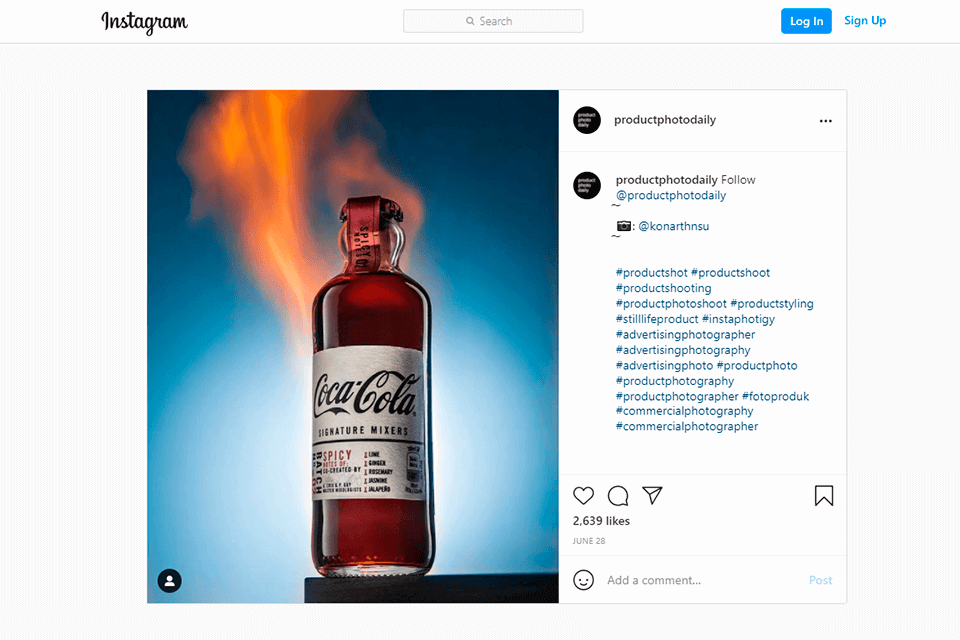
What does everyone feel after eating something spicy? Their mouth is burning! That’s why the simplest and most visually effective thing you can do is set the subject of the photoshoot on fire. There are several ways to do so.
Firstly, you can take photos of the food and flame separately, and then seek help from experts to compile both images.
Secondly, you can light up kerosene/rubbing alcohol. Thirdly, you can make a cold flame out of alcohol, dry boric acid, and sulfuric or hydrochloric acid, which will produce a fire that won’t burn you.
If you simply decided to set fire to the object, you can soak cotton wool in kerosene or alcohol and put it behind the main subject or inside of it. To capture the fire perfectly, you need to shed adequate light onto the product and take photos with an exposure time of at least 1/5.
Since you’ll be working with fire, safety should be your top priority. Aluminum foil under the object, wet towels, water, and a fire extinguisher should always be at hand.
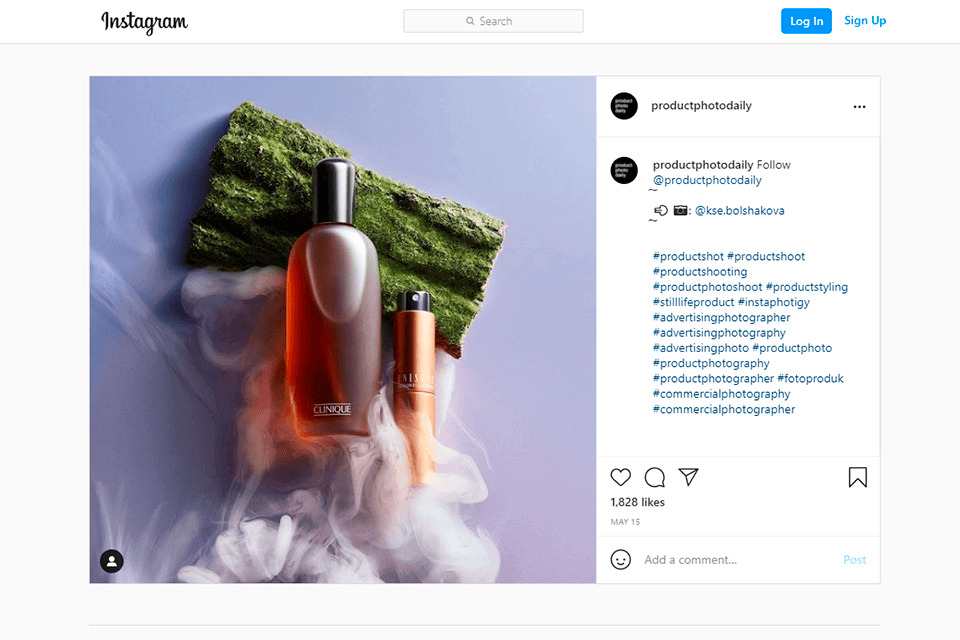
We didn’t stray far from the previous suggestion, but this one is safer and more universal. You can use smoke to advertise nearly everything from makeup to clothing. There are several ways to create smoke, the safest of which is to use dry ice, which can be bought rather easily and produces a lot of smoke. You can also use smoke bombs, but they are hard to control, especially indoors.
Before getting to work, ensure your room or studio is ventilated properly. One of the potential negative consequences of working with dry ice in a poorly ventilated area is a headache that can be accompanied by difficulties in breathing and nausea.